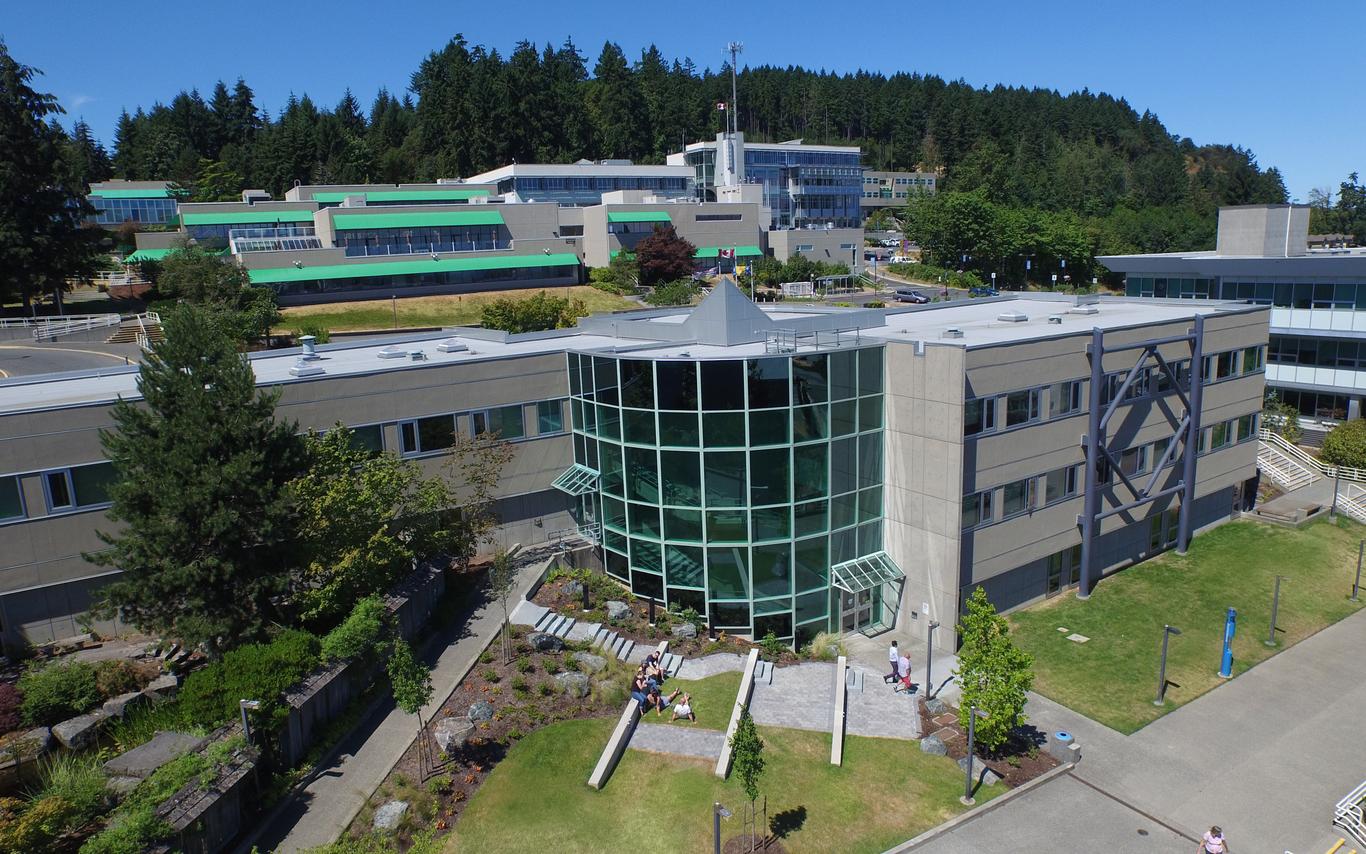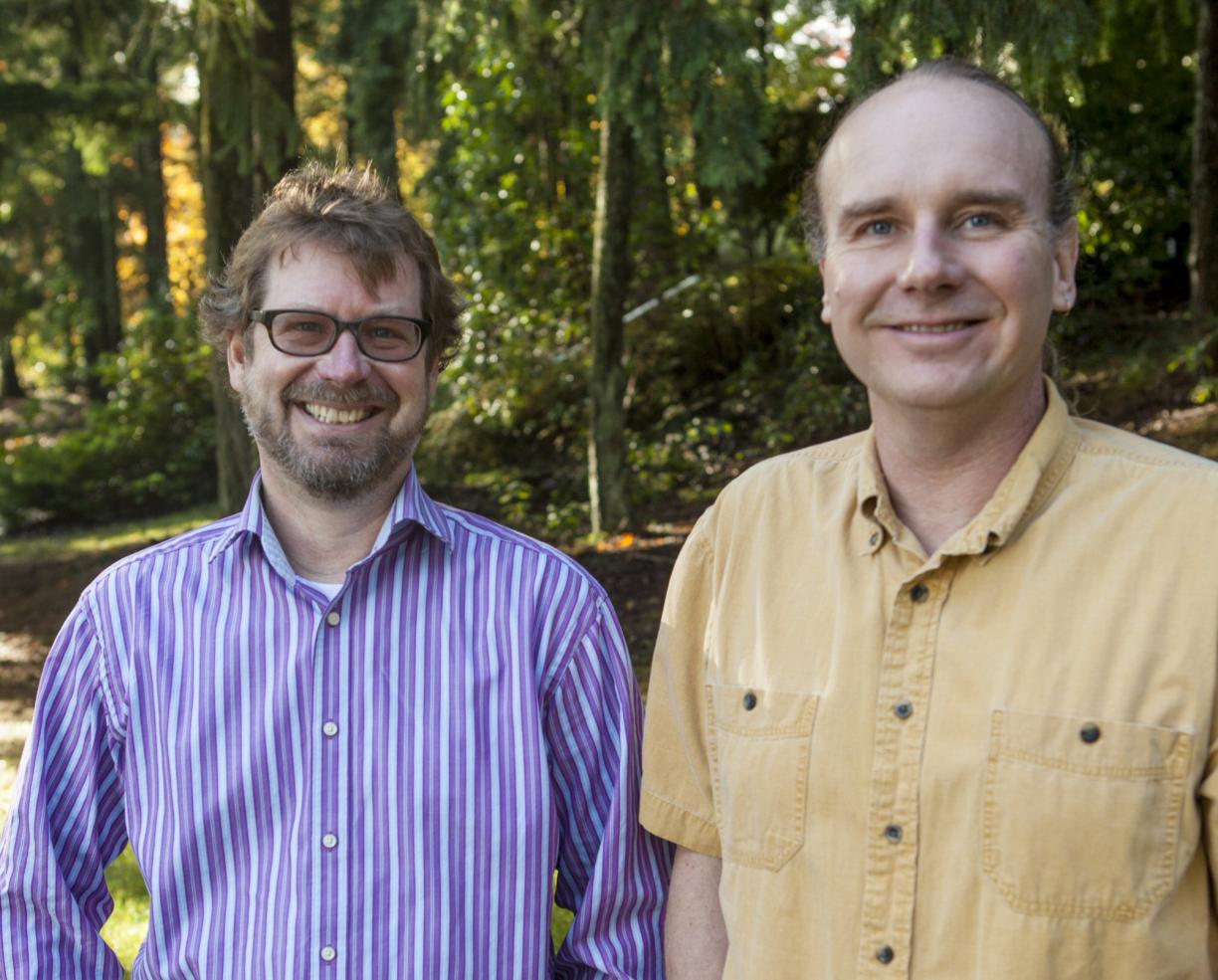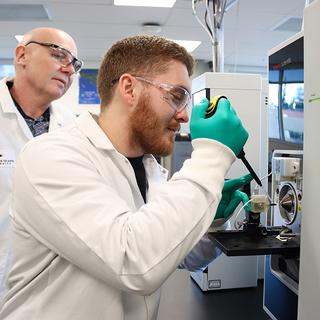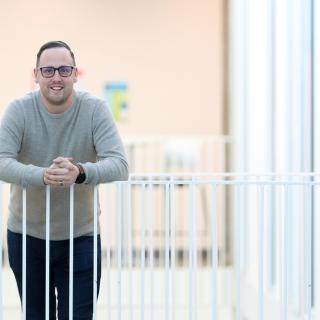VIU acquiring first high-resolution mass spectrometry instrument of its kind in the central Vancouver Island region thanks to grants from the Canada Foundation for Innovation and BC Knowledge Development Fund.
Vancouver Island University (VIU) researchers are striving for faster, better and more economical mass spectrometry methods to measure environmental and biological samples in the field to help protect the environment and human life.
Thanks to a $487,314 research infrastructure grant from the Canada Foundation for Innovation and the BC Knowledge Development Fund, Dr. Chris Gill and Dr. Erik Krogh, VIU Chemistry Professors and Co-Directors of the Applied Environmental Research Laboratories (AERL), are one step closer on their journey.
The money will help VIU acquire an Orbitrap Mass Spectrometer System made by Thermo Fisher Scientific, the first high-resolution mass spectrometry instrument of its kind available in the central Vancouver Island region for research and development. Acquiring this piece of equipment will allow them to develop faster, better and cheaper methods of analyzing complicated samples for trace contaminants and train the next generation of researchers to make challenging chemical measurements using direct mass spectrometry.
The researchers’ long-term goals include the development of next-generation technologies, that in the future could be used to measure environmental, forensic and clinical samples in the field instead of having to send the samples to a lab and wait for results.
“In the bigger picture what we’re working toward are really ‘game changing’ methods and techniques that shift the whole paradigm of how we get accurate chemical measurements done in a hurry. This can make a big difference, for example, in the clinical setting or at a contaminated site,” says Krogh. “This really changes the questions that can be asked and how this information can be used to inform decisions when and where they are needed.”
The Orbitrap Mass Spectrometer system provides excellent mass resolution, which allows researchers to easily identify and measure closely related molecules in complex mixtures.
“With this high-precision data, we can start to answer different questions like what are the other things in complicated samples that might be influencing our measurements?” says Gill. “What are the interferences we see? It could be an environmental sample. It could be a drug sample. It could be any complicated real-world sample we need to know more about.”
Gill says this research can help develop better tools for use in clinical diagnostics, harm reduction drug checking, responding to environmental issues and assisting first responders.
For the past 20 years, Gill and Krogh have been making ground-breaking innovations in the development and application of mass spectrometry. They developed the Mobile Mass Spectrometry Lab, known affectionately as the Mass Specmobile, unique in Western Canada.
Krogh and a team of AERL researchers recently used this facility to map the distribution of trace volatile organic compounds that impact air quality in local communities. In 2019, Gill led a team of AERL researchers to develop a breakthrough mass spectrometry-based drug-testing system, which rapidly identifies and measures toxic substances, such as fentanyl, carfentanil and etizolam. The presence and varying levels of these and other dangerous drugs has been responsible for astonishing increases in the number of overdoses and deaths in the opioid overdose crisis. This system has now been successfully used on-site during a harm reduction drug checking pilot program conducted in collaboration with Vancouver Coastal Health at The Powell Street Getaway Safe Consumption Site in Vancouver, BC.
-30-
MEDIA CONTACT:
Rachel Stern, Communications Officer, Vancouver Island University
C: 250.618.0373 l E: Rachel.Stern@viu.ca | T: @VIUNews




